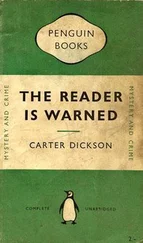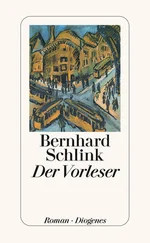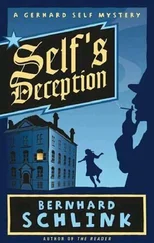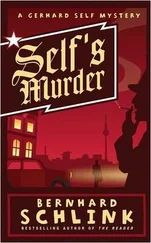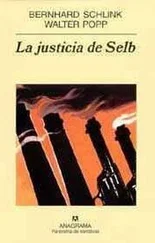My father saw my relief. “That’s how you like your philosophy?”
“Well, I didn’t know if one had to act in the circumstances I described, and I wasn’t really happy with the idea that one must, and if one really isn’t allowed to do anything at all, I find that…” I didn’t know what to say. A relief? A comfort? Appealing? That didn’t sound like morality and responsibility. “I think that’s good” would have sounded moral and responsible, but I couldn’t say I thought it was good, that I thought it was any more than a relief.
“Appealing?” my father suggested.
I nodded and shrugged my shoulders.
“No, your problem has no appealing solution. Of course one must act if the situation as you describe it is one of accrued or inherited responsibility. If one knows what is good for another person who in turn is blind to it, then one must try to open his eyes. One has to leave him the last word, but one must talk to him, to him and not to someone else behind his back.”
Talk to Hanna? What would I say to her? That I had seen through her lifelong lie? That she was in the process of sacrificing her whole life to this silly lie? That the lie wasn’t worth the sacrifice? That that was why she should fight not to remain in prison any longer than she had to, because there was so much she could still do with her life afterwards? Could I deprive her of her lifelong lie, without opening some vision of a future to her? I had no idea what that might be, nor did I know how to face her and say that after what she had done it was right that her short- and medium-term future would be prison. I didn’t know how to face her and say anything at all. I didn’t know how to face her.
I asked my father: “And what if you can’t talk to him?”
He looked at me doubtfully, and I knew myself that the question was beside the point. There was nothing more to moralize about. I just had to make a decision.
“I haven’t been able to help you.” My father stood up and so did I. “No, you don’t have to go, it’s just that my back hurts.” He stood bent over, with his hands pressed against his kidneys. “I can’t say that I’m sorry I can’t help you. As a philosopher, I mean, which is how you were addressing me. As your father, I find the experience of not being able to help my children almost unbearable.”
I waited, but he didn’t say anything else. I thought he was making it easy on himself; I knew when he could have taken care of us more and how he could have helped us more. Then I thought that perhaps he realized this himself and really found it difficult to bear. But either way I had nothing to say to him. I was embarrassed, and had the feeling he was embarrassed too.
“Well then…”
“You can come any time.” My father looked at me.
I didn’t believe him, and nodded.
I N JUNE, the court flew to Israel for two weeks. The hearing there took only a few days, but the judge and prosecutors made it a combined judicial and touristic outing, Jerusalem and Tel Aviv, the Negev and the Red Sea. It was undoubtedly all aboveboard as regards rules of conduct, vacations, and expense accounts, but I found it bizarre nonetheless.
I had planned to devote these two weeks to my studies. But it didn’t go the way I had imagined and planned. I couldn’t concentrate enough to learn anything, either from the professors or my books. Again and again, my thoughts wandered off and were lost in images.
I saw Hanna by the burning church, hard-faced, in a black uniform, with a riding whip. She drew circles in the snow with her whip, and slapped it against her boots. I saw her being read to. She listened carefully, asked no questions, and made no comments. When the hour was over, she told the reader she would be going on the transport to Auschwitz next morning. The reader, a frail creature with a stubble of black hair and nearsighted eyes, began to cry. Hanna hit the wall with her hand and two women, also prisoners in striped clothing, came in and pulled the reader away. I saw Hanna walking the paths in the camp, going into the prisoners’ barracks and overseeing construction work. She did it all with the same hard face, cold eyes, and pursed mouth, and the prisoners ducked, bent over their work, pressed themselves against the wall, into the wall, wanted to disappear into the wall. Sometimes there were many prisoners gathered together or running from one place to the other or standing in line or marching, and Hanna stood among them and screamed orders, her screaming face a mask of ugliness, and helped things along with her whip. I saw the church steeple crashing into the roof and the sparks flying and heard the desperation of the women. I saw the burned-out church next morning.
Alongside these images, I saw the others. Hanna pulling on her stockings in the kitchen, standing by the bathtub holding the towel, riding her bicycle with skirts flying, standing in my father’s study, dancing in front of the mirror, looking at me at the pool, Hanna listening to me, talking to me, laughing at me, loving me. Hanna loving me with cold eyes and pursed mouth, silently listening to me reading, and at the end banging the wall with her hand, talking to me with her face turning into a mask. The worst were the dreams in which a hard, imperious, cruel Hanna aroused me sexually; I woke from them full of longing and shame and rage. And full of fear about who I really was.
I knew that my fantasized images were poor clichés. They were unfair to the Hanna I had known and still knew. But still they were very powerful. They undermined my actual memories of Hanna and merged with the images of the camps that I had in my mind.
When I think today about those years, I realize how little direct observation there actually was, how few photographs that made life and murder in the camps real. We knew the gate of Auschwitz with its inscription, the stacked wooden bunks, the piles of hair and spectacles and suitcases; we knew the building that formed the entrance to Birkenau with the tower, the two wings, and the entryway for the trains, and from Bergen-Belsen the mountains of corpses found and photographed by the Allies at the liberation. We were familiar with some of the testimony of prisoners, but many of them were published soon after the war and not reissued until the 1980s, and in the intervening years they disappeared from publishers’ lists. Today there are so many books and films that the world of the camps is part of our collective imagination and completes our ordinary everyday one. Our imagination knows its way around in it, and since the television series Holocaust and movies like Sophie’s Choice and especially Schindler’s List, actually moves in it, not just registering, but supplementing and embellishing it. Back then, the imagination was almost static: the shattering fact of the world of the camps seemed properly beyond its operations. The few images derived from Allied photographs and the testimony of survivors flashed on the mind again and again, until they froze into clichés.
I DECIDED TO go away. If I had been able to leave for Auschwitz the next day, I would have gone. But it would have taken weeks to get a visa. So I went to Struthof in Alsace. It was the nearest concentration camp. I had never seen one. I wanted reality to drive out the clichés.
I hitchhiked, and remember a ride in a truck with a driver who downed one bottle of beer after another, and a Mercedes driver who steered wearing white gloves. After Strasbourg I got lucky; the driver was going to Schirmeck, a small town not far from Struthof.
When I told the driver where I was going, he fell silent. I looked over at him, but couldn’t tell why he had suddenly stopped talking in the midst of a lively conversation. He was middle-aged, with a haggard face and a dark red birthmark or scar on his right temple, and his black hair was carefully parted and combed in strands. He stared at the road in concentration.
Читать дальше

